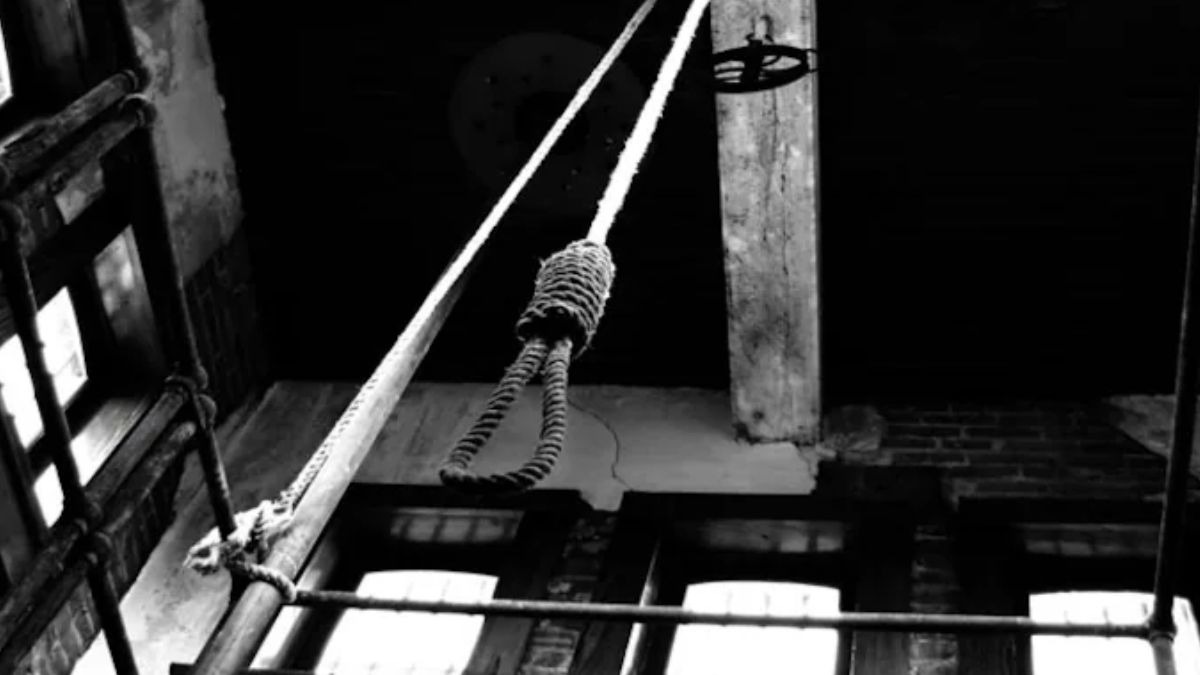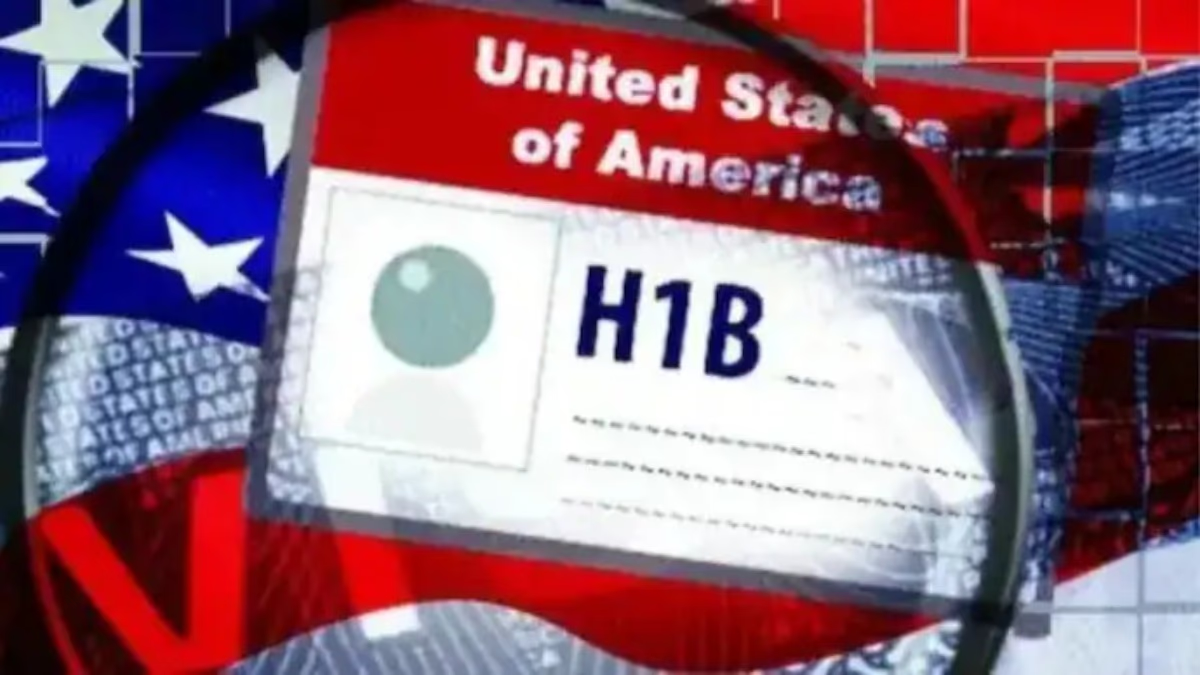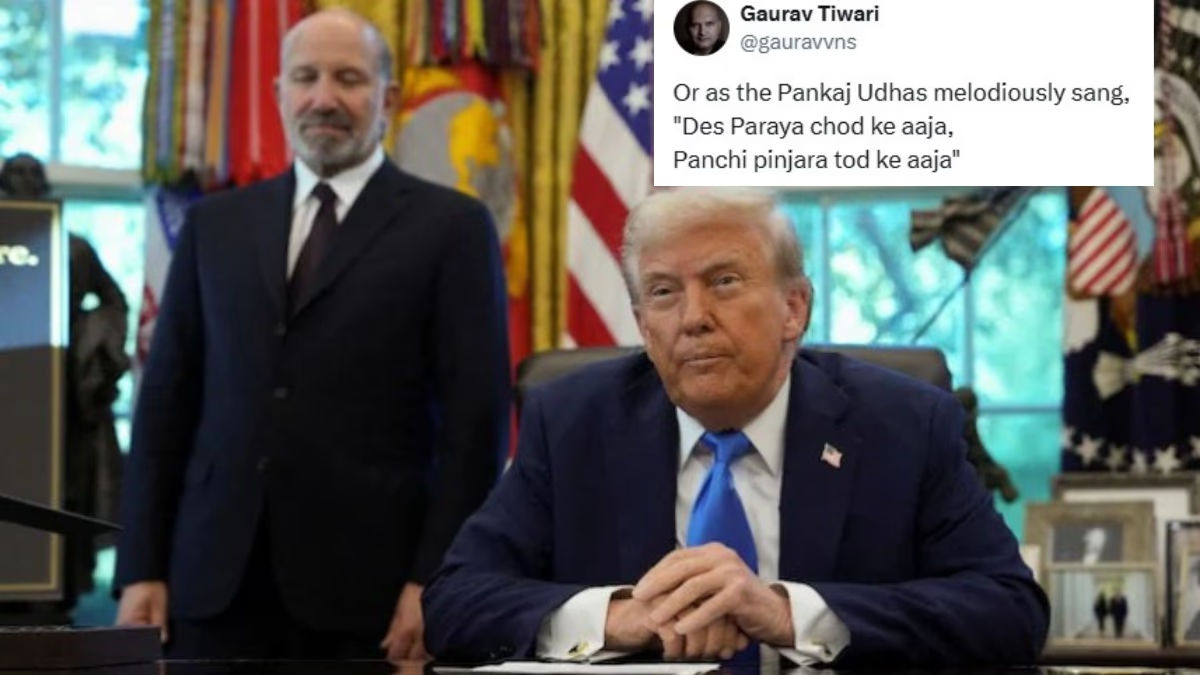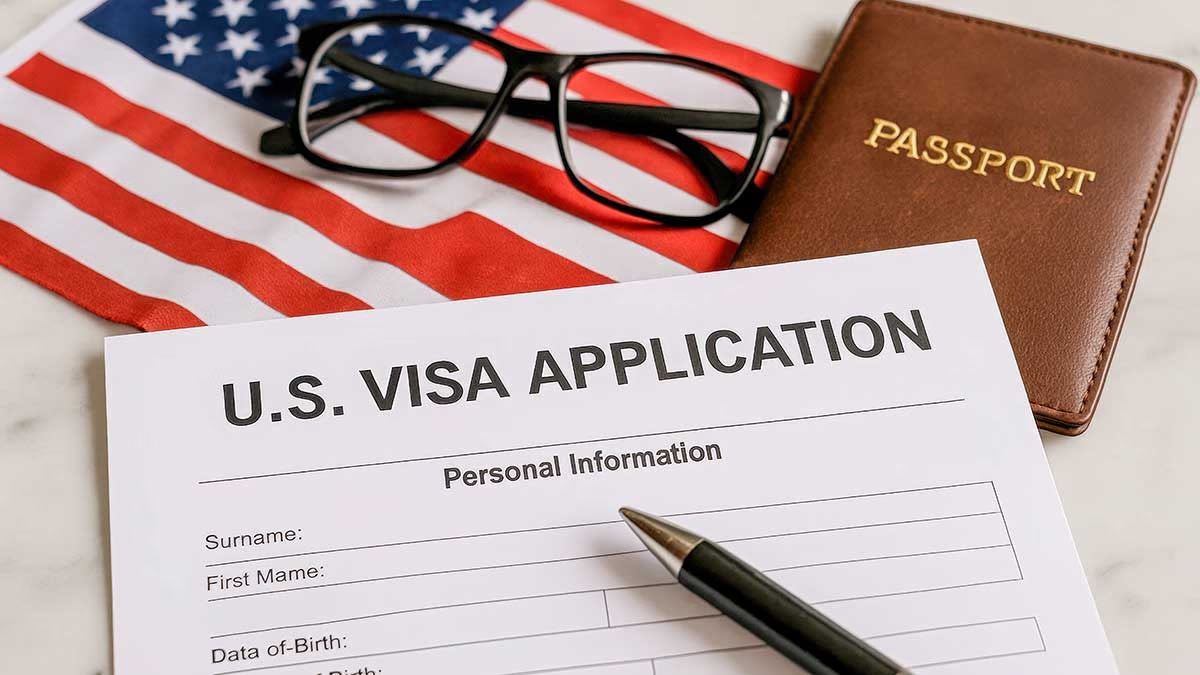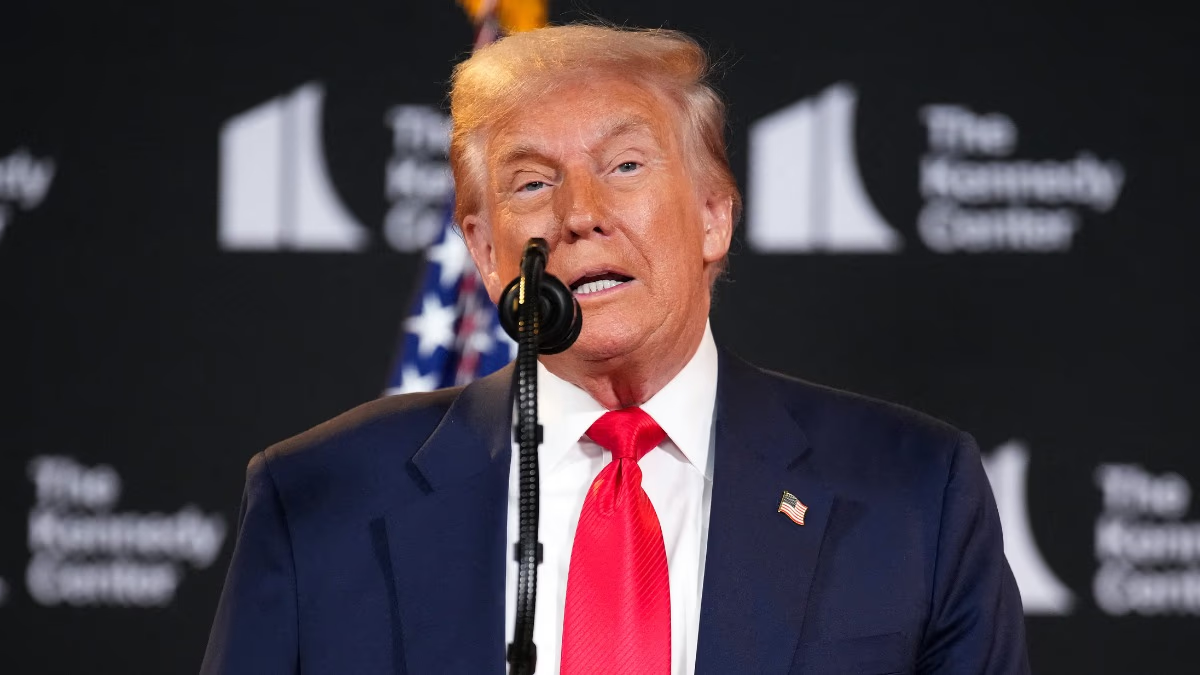President Draupadi Murmu has decisively rejected the mercy petition of the Pakistani terrorist Mohammed Arif, also known as Ashfaq, sentenced to death for his role in the Red Fort attack.
It has been 24 years since the Red Fort was besieged by a terrorist attack. On December 22, 2000, terrorists launched a fierce assault on the soldiers of the Rajputana Rifles stationed within the fort walls. The attack claimed the lives of three brave soldiers. Four days later, Ashfaq, a member of the terror group Lashkar-e-Taiba, was apprehended by Delhi Police. Two co-conspirators, Abu Shaad, Abu Bilal, and Abu Haider, were eliminated in an encounter.
The trial court awarded Ashfaq the death penalty in October 2005. This sentence was later upheld by the Delhi High Court and the Supreme Court. In November 2022, the Supreme Court also rejected his review petition.
Murmu Rejects Second Mercy Petition
After all judicial avenues were closed, Ashfaq made a mercy petition to President Murmu on May 15, which was promptly dismissed on May 27. Under Article 72 of the Constitution, the President has the power to pardon, commute, or stay the execution of sentences in certain cases.
Since taking office in July 2022, President Murmu has rejected the mercy petitions of two convicts. Last year, she dismissed the plea of Vasant Dupare, who was sentenced to death for raping and murdering a four-year-old girl. Dupare lured the child with the promise of chocolate, raped her, and then brutally crushed her head with stones.
Following the rejection of his mercy petition by the President, Dupare took his case to the Supreme Court in April last year.
Experts believe that a convict on death row can still seek relief from the Supreme Court under Article 32 of the Constitution based on the undue delay in carrying out their sentence.
Kovind Dismissed Six Petitions
Former President Pranab Mukherjee rejected 30 mercy petitions during his tenure. These included the petitions of Ajmal Kasab, Afzal Guru, and Yakub Memon, all three of whom were executed.
From 2017 to 2022, President Ram Nath Kovind dismissed six mercy petitions, four of which belonged to convicts in the Nirbhaya case, who were all executed. Additionally, the petition of Jagat Rai, who burned alive seven people, was rejected in April 2018. On July 16, 2020, President Kovind rejected the petition of Sanjay.
President Draupadi Murmu has, to date, rejected two mercy petitions. According to the data on the President's Secretariat website, no mercy petitions are currently pending.
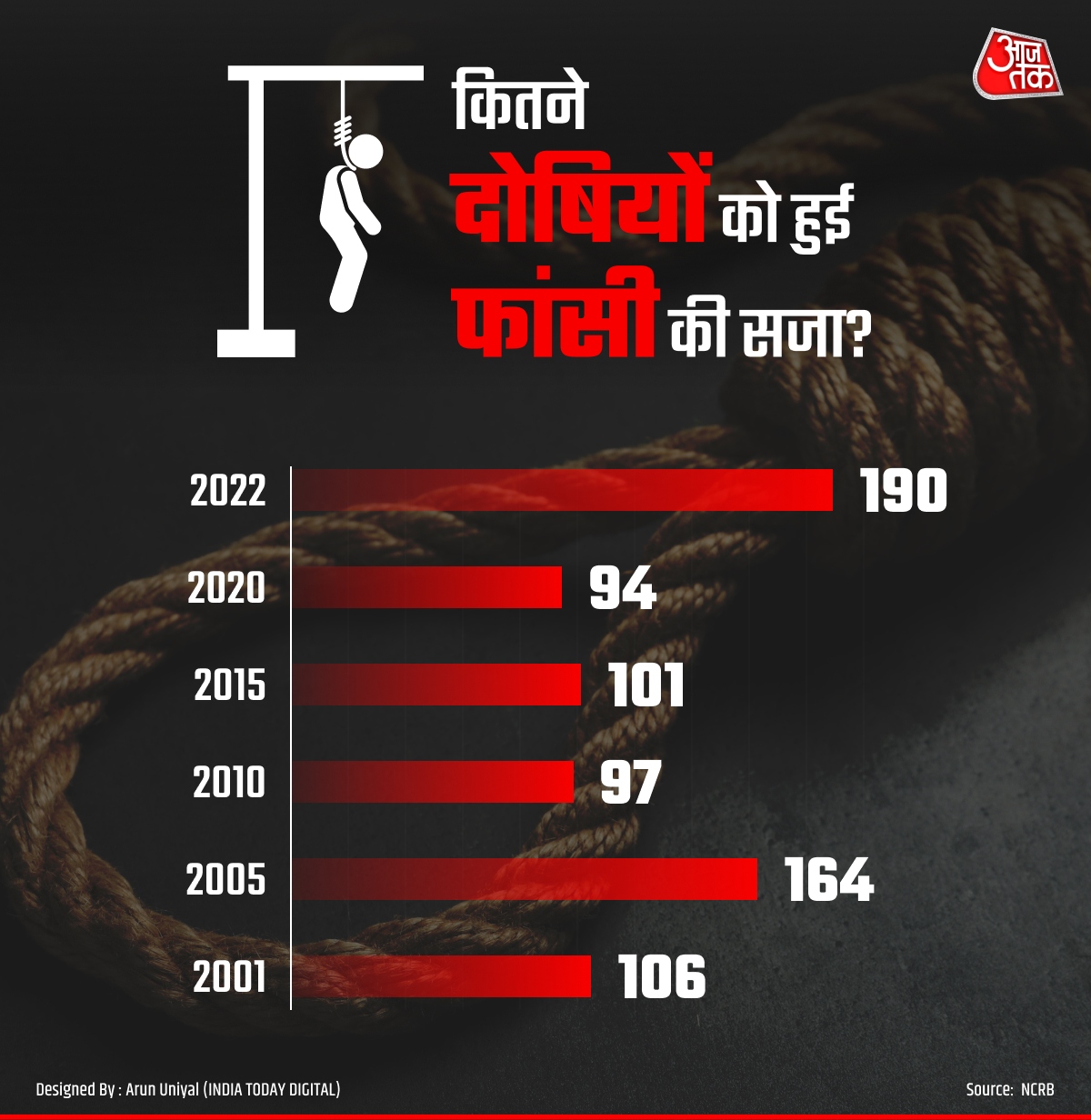
Source: aajtak
Four Women's Mercy Petitions Rejected Over 12 Years
Over a span of 12 years, mercy petitions from four women have been rejected. Two of these were sisters, Renuka Shinde and Seema Gavit, who, along with their mother Anjana Gavit, were convicted of killing 42 children in Pune between 1990 and 1996. Anjana passed away due to illness in 1998. The two sisters were sentenced to death and had their petition rejected in July 2014.
In addition to these cases, petitions from Sonia and Shabnam were also dismissed. Sonia, along with her husband Sanjeev, murdered eight members of her family, including her father, an independent MLA from Haryana. As for Shabnam, she, along with her lover Salim, killed seven of her own family members in April 2008. Both Shabnam and Salim's petitions were rejected in August 2016.
Capital Punishment: Who Has Been Executed in The Last 20 Years?
Details of those executed from Dhananjoy Chatterjee in 2004 to the Nirbhaya case convicts in 2020 are provided, emphasizing the gravity and finality of capital punishment in India.
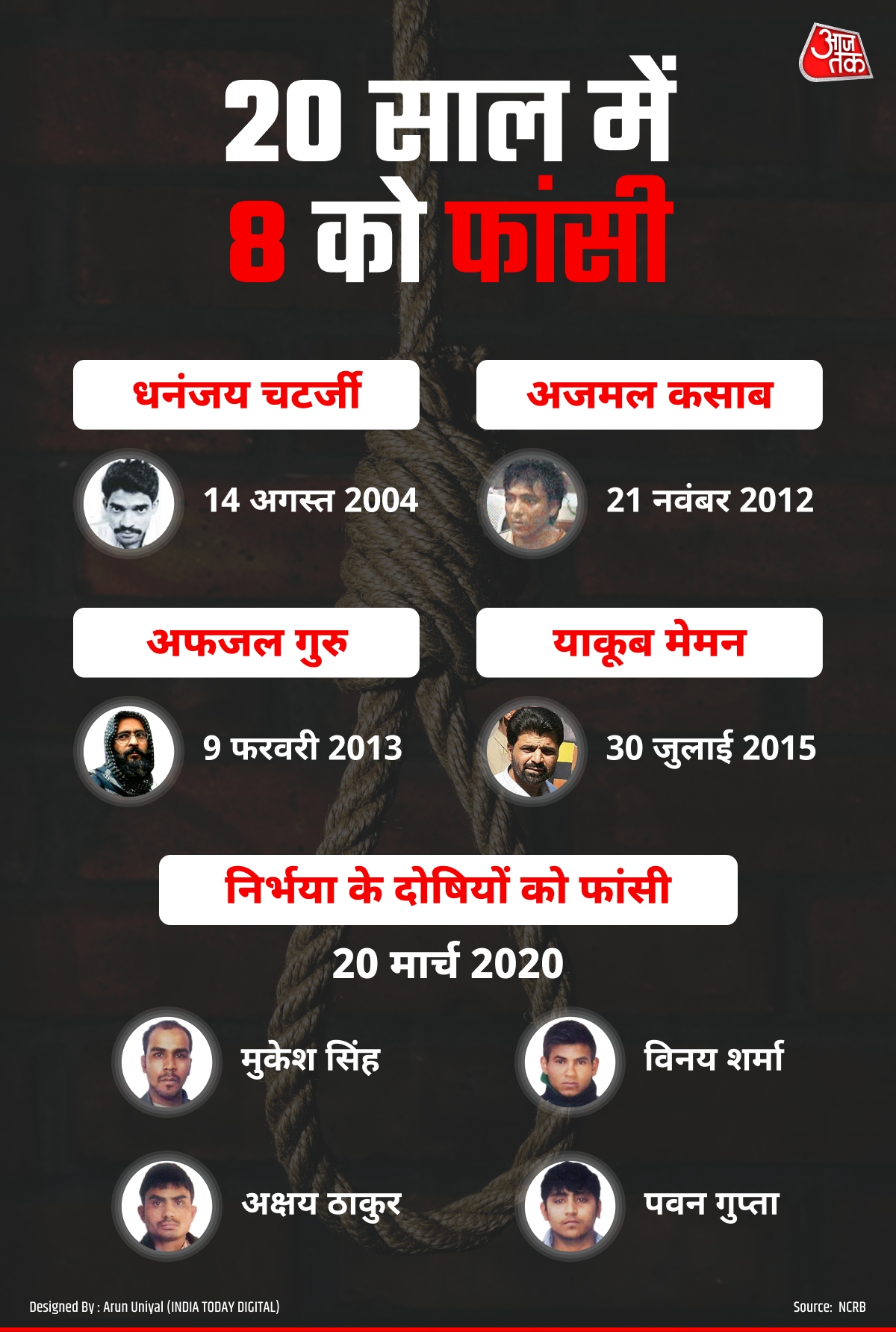
Source: aajtak
Delays and Alternatives to Execution
Despite the rejection of mercy petitions by the President, executions can be stalled due to renewed court proceedings. In some cases, the death penalty is later commuted to life imprisonment. For example, Devender Pal Singh Bhullar's mercy petition was initially denied, yet his death sentence was converted to life imprisonment due to an 8-year delay in decision.
Sonia, convicted along with her spouse of extinguishing her entire family, still awaits execution despite her mercy plea rejection. Shabnam, who orchestrated the murder of her family with her paramour, similarly continues to live, although her petition has been declined.
According to National Crime Records Bureau (NCRB) data, courts across India sentenced 190 individuals to death in 2022, whereas 51 death sentences were commuted to life imprisonment.
Between 2001 and 2022, NCRB records show that 2,881 convicts have been sentenced to death. It paints a stark picture of justice and its profound consequences.
